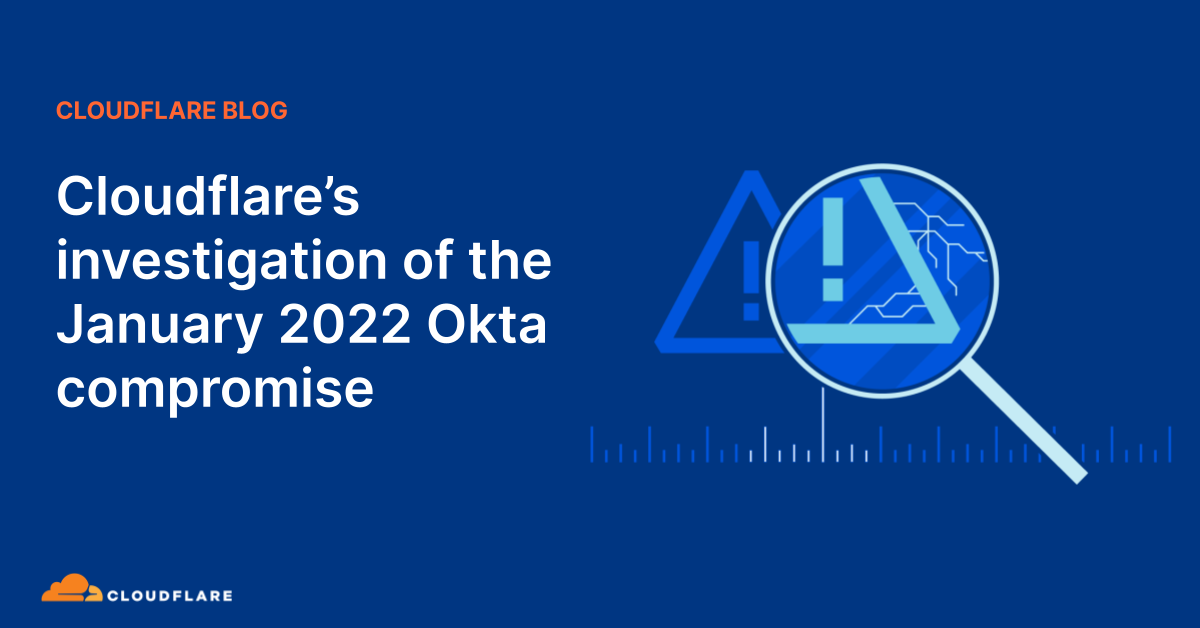Okta User Session Impersonation
A user has initiated a session impersonation granting them access to the environment with the permissions of the user they are impersonating. This would likely indicate Okta administrative access and should only ever occur if requested and expected.
Elastic rule (View on GitHub)
1[metadata]
2creation_date = "2022/03/22"
3integration = ["okta"]
4maturity = "production"
5updated_date = "2024/09/23"
6
7[rule]
8author = ["Elastic"]
9description = """
10A user has initiated a session impersonation granting them access to the environment with the permissions of the user
11they are impersonating. This would likely indicate Okta administrative access and should only ever occur if requested
12and expected.
13"""
14from = "now-30m"
15index = ["filebeat-*", "logs-okta*"]
16interval = "15m"
17language = "kuery"
18license = "Elastic License v2"
19name = "Okta User Session Impersonation"
20note = """## Triage and analysis
21
22### Investigating Okta User Session Impersonation
23
24The detection of an Okta User Session Impersonation indicates that a user has initiated a session impersonation which grants them access with the permissions of the user they are impersonating. This type of activity typically indicates Okta administrative access and should only ever occur if requested and expected.
25
26#### Possible investigation steps
27
28- Identify the actor associated with the impersonation event by checking the `okta.actor.id`, `okta.actor.type`, `okta.actor.alternate_id`, or `okta.actor.display_name` fields.
29- Review the `event.action` field to confirm the initiation of the impersonation event.
30- Check the `event.time` field to understand the timing of the event.
31- Check the `okta.target.id`, `okta.target.type`, `okta.target.alternate_id`, or `okta.target.display_name` to identify the user who was impersonated.
32- Review any activities that occurred during the impersonation session. Look for any activities related to the impersonated user's account during and after the impersonation event.
33
34### False positive analysis
35
36- Verify if the session impersonation was part of an approved activity. Check if it was associated with any documented administrative tasks or troubleshooting efforts.
37- Ensure that the impersonation session was initiated by an authorized individual. You can check this by verifying the `okta.actor.id` or `okta.actor.display_name` against the list of approved administrators.
38
39### Response and remediation
40
41- If the impersonation was not authorized, consider it as a breach. Suspend the user account of the impersonator immediately.
42- Reset the user session and invalidate any active sessions related to the impersonated user.
43- If a specific impersonation technique was used, ensure that systems are patched or configured to prevent such techniques.
44- Conduct a thorough investigation to understand the extent of the breach and the potential impact on the systems and data.
45- Review and update your security policies to prevent such incidents in the future.
46- Implement additional monitoring and logging of Okta events to improve visibility of user actions.
47
48## Setup
49
50The Okta Fleet integration, Filebeat module, or similarly structured data is required to be compatible with this rule."""
51references = [
52 "https://blog.cloudflare.com/cloudflare-investigation-of-the-january-2022-okta-compromise/",
53 "https://www.elastic.co/security-labs/testing-okta-visibility-and-detection-dorothy",
54 "https://www.elastic.co/security-labs/monitoring-okta-threats-with-elastic-security",
55 "https://www.elastic.co/security-labs/starter-guide-to-understanding-okta",
56 "https://www.elastic.co/security-labs/okta-and-lapsus-what-you-need-to-know",
57]
58risk_score = 73
59rule_id = "cdbebdc1-dc97-43c6-a538-f26a20c0a911"
60severity = "high"
61tags = ["Use Case: Identity and Access Audit", "Tactic: Credential Access", "Data Source: Okta"]
62timestamp_override = "event.ingested"
63type = "query"
64
65query = '''
66event.dataset:okta.system and event.action:user.session.impersonation.initiate
67'''
68
69
70[[rule.threat]]
71framework = "MITRE ATT&CK"
72
73[rule.threat.tactic]
74id = "TA0006"
75name = "Credential Access"
76reference = "https://attack.mitre.org/tactics/TA0006/"
Triage and analysis
Investigating Okta User Session Impersonation
The detection of an Okta User Session Impersonation indicates that a user has initiated a session impersonation which grants them access with the permissions of the user they are impersonating. This type of activity typically indicates Okta administrative access and should only ever occur if requested and expected.
Possible investigation steps
- Identify the actor associated with the impersonation event by checking the
okta.actor.id,okta.actor.type,okta.actor.alternate_id, orokta.actor.display_namefields. - Review the
event.actionfield to confirm the initiation of the impersonation event. - Check the
event.timefield to understand the timing of the event. - Check the
okta.target.id,okta.target.type,okta.target.alternate_id, orokta.target.display_nameto identify the user who was impersonated. - Review any activities that occurred during the impersonation session. Look for any activities related to the impersonated user's account during and after the impersonation event.
False positive analysis
- Verify if the session impersonation was part of an approved activity. Check if it was associated with any documented administrative tasks or troubleshooting efforts.
- Ensure that the impersonation session was initiated by an authorized individual. You can check this by verifying the
okta.actor.idorokta.actor.display_nameagainst the list of approved administrators.
Response and remediation
- If the impersonation was not authorized, consider it as a breach. Suspend the user account of the impersonator immediately.
- Reset the user session and invalidate any active sessions related to the impersonated user.
- If a specific impersonation technique was used, ensure that systems are patched or configured to prevent such techniques.
- Conduct a thorough investigation to understand the extent of the breach and the potential impact on the systems and data.
- Review and update your security policies to prevent such incidents in the future.
- Implement additional monitoring and logging of Okta events to improve visibility of user actions.
Setup
The Okta Fleet integration, Filebeat module, or similarly structured data is required to be compatible with this rule.
References
Related rules
- Attempted Bypass of Okta MFA
- Attempts to Brute Force an Okta User Account
- Multiple Okta User Auth Events with Same Device Token Hash Behind a Proxy
- Okta Brute Force or Password Spraying Attack
- Potential Okta MFA Bombing via Push Notifications




